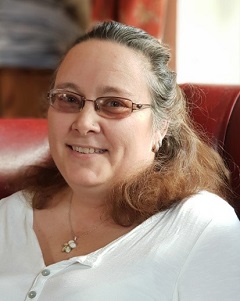
Development
You are here
- Home
- Ethics, Values and Assumptions that Progress Collaboration for Good Change
Ethics, Values and Assumptions that Progress Collaboration for Good Change
This is a featured blog post by OU alumna Alison Wilson. She holds an MSc in Development Management with The Open University, and is currently exploring opportunities that embrace environmental and conservation strategies within the development field specifically related to livelihood adaptation and resilience within the agricultural and pastoral economy. She is also supporting her daughter who has physical and learning disabilities to transition towards independent living.

A chance meeting with a retired lecturer in my local pub started a conversation about universities and learning. He commented that The Open University specifically targeted courses geared for employment and, in his opinion, this rigidity led to an absence of depth in learning.
His words led me to reflect on the experiences I found invaluable whilst completing the MSc Development Management programme. Amongst these the materials, the depth of knowledge both of my tutors and fellow students, and the broadening of current processes and ideology to enhance one’s job status or ability to secure employment within the international field, were near the top of the list. Indeed, all of these have been widely advocated by past and fellow peers and, personally, I started my academic journey with the OU specifically for this reason: to re-enter and gain employment.
However, these initial motivations were later superseded through discovery of the core development goals – including poverty, food security, gender equality and equity for all – in a way that focused on building personal capacity. Through our learning, we became able to make meaningful value judgements of current social norms, and a baseline was instilled from which to change behaviours and enable good development.
T878, Capacities for Managing Development, was key to consolidating this learning process, while TD866, Environmental Responsibility: Ethics, Policy and Action, provided the theories and concepts to anchor responsible change.
The grounding this deeper understanding offered has helped me to make informed judgements based on evidence, although the process of learning and evaluating knowledge has been difficult and mostly uncomfortable. However, I believe it’s precisely this ‘uncomfortable’ state that has helped to consolidate my learning and which has left me fully able to formulate my own values based on rigorous investigation.
Understanding my own viewpoint has helped me to understand that of other people. One of my father’s favourite sayings was, ‘There’s always three sides to a coin.’ He understood that different perspectives can offer vastly different accounts of the same situation, and how this can lead to multiple truths and solutions that cater for different people – some offering advantageous solutions for multiple people, others ... not so much.
TU872, Institutional Development, builds on interrelated relationships with concepts such as collaboration, coordination, cooperation and competition within and between organisations and institutions. Applying these to evidential multiple truths iteratively further advanced my thinking, which I was able to convey through the Development Management Project TU874.
The rigour the research for this demanded gave me an appreciation of reality, of people living in paradoxical uncertain worlds where close inspection of unity is transformed into complex multiplicities in which the ideology of collaboration could be flawed. Subjectivity and uncertainty coupled with diverse motivations and multiple knowledge and expertise can sometimes translate to unity or, at others, to disruption and conflict.
Subjectivity of opinions and viewpoints could lead to conflict due to apathy and/or reticence to change or, through everyday activities, to new social norms through a positive virtuous cycle up-taken and habitualized. By understanding these different subjective perspectives, and my own, I’ve found dialogue can be achieved between multiple participants in any given situation.
Personally, the exploration of ethics and values proved paramount to my understanding and learning. The idea of a virtuous cycle of habituality to create new social norms specifically aimed towards good developmental change particularly appealed as all change is concerned with politicised value beliefs and the ethics of development.
Attention to development ambitions helped disconnect us from the dominant discourse – of the universality of development practice – and towards thinking about representations other than the economic or market-led. In other words, away from homogenisation and towards a heterogeneous geography that caters for all agencies.
You could say that the Development Management MSc has enhanced my ability to think ‘outside the box’, and to incorporate the many factors of well-being and happiness.
Ultimately, each person’s interests and motivations will make their experience unique, but every student will receive the knowledge and tools needed to accomplish a research project based on integrity and truth.
It’s true that the Development Management MSc can offer a key to advancing your career, but this is insignificant compared to its value in increasing your self-awareness and understanding of others. In my case, it’s increased my capacity to view situations and issues within a complex political, social and economic society as interrelated and interdependent, and to realise that the impetus for a normative discourse towards sustainability and adaptive resilience depends not only on a willingness to act but also on ethical codes – on the obligations, entitlements, rights and duties that form responsibility and positively support shared intentions.
By advancing your personal ethics and values, and enabling you to communicate your own capacity to promote a virtuous cycle towards good change, this deeper learning will show potential employers you possess the necessary integrity to be part of a team working to further developmental good change.
The Open University may well target courses towards employment but, in my experience, far from being rigid, its courses offer flexibility for a deep learning experience. This experience is based on knowledge and grounded by personal ethical values which make for rewarding – and often uncomfortable – study.
Ready to Master your career with The Open University? Find out more
Request your prospectus
![]()
Explore our qualifications and courses by requesting one of our prospectuses today.
